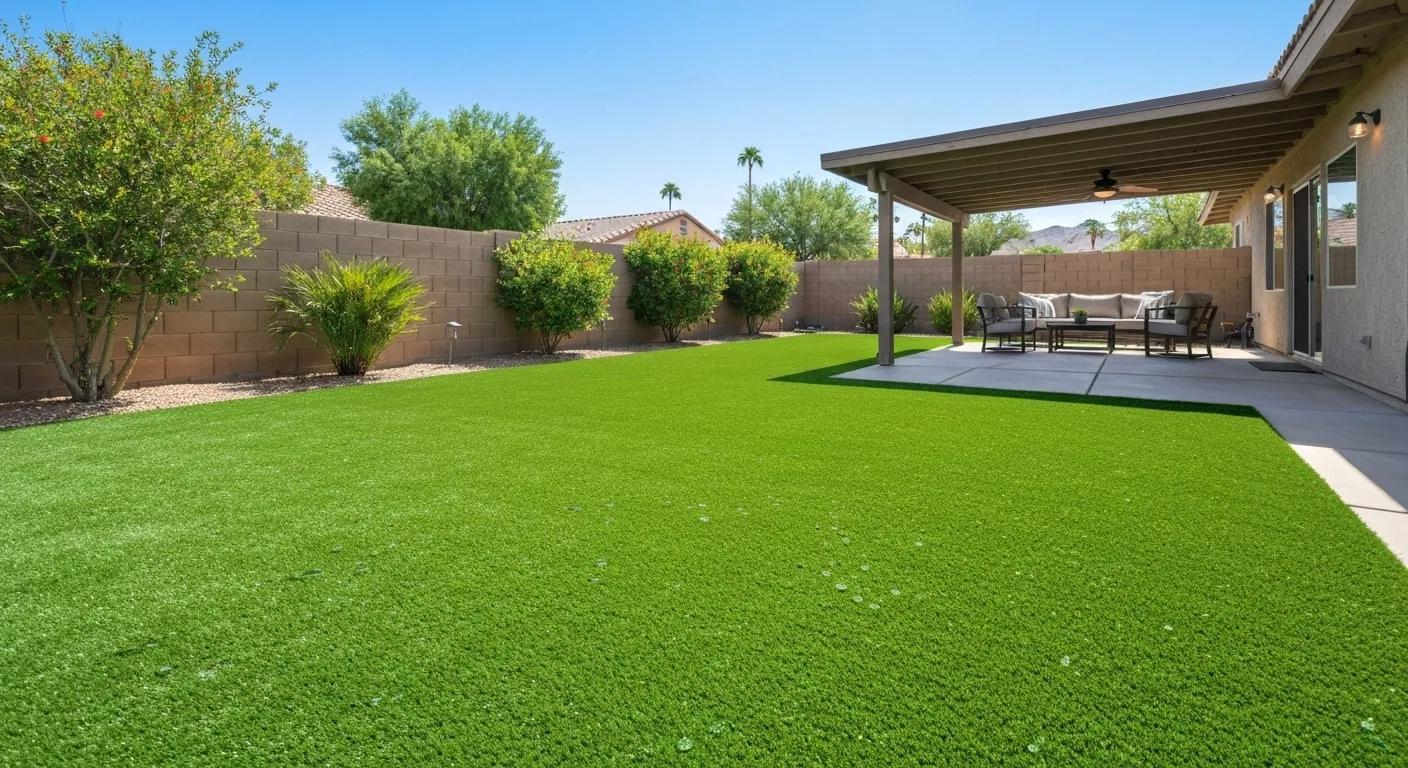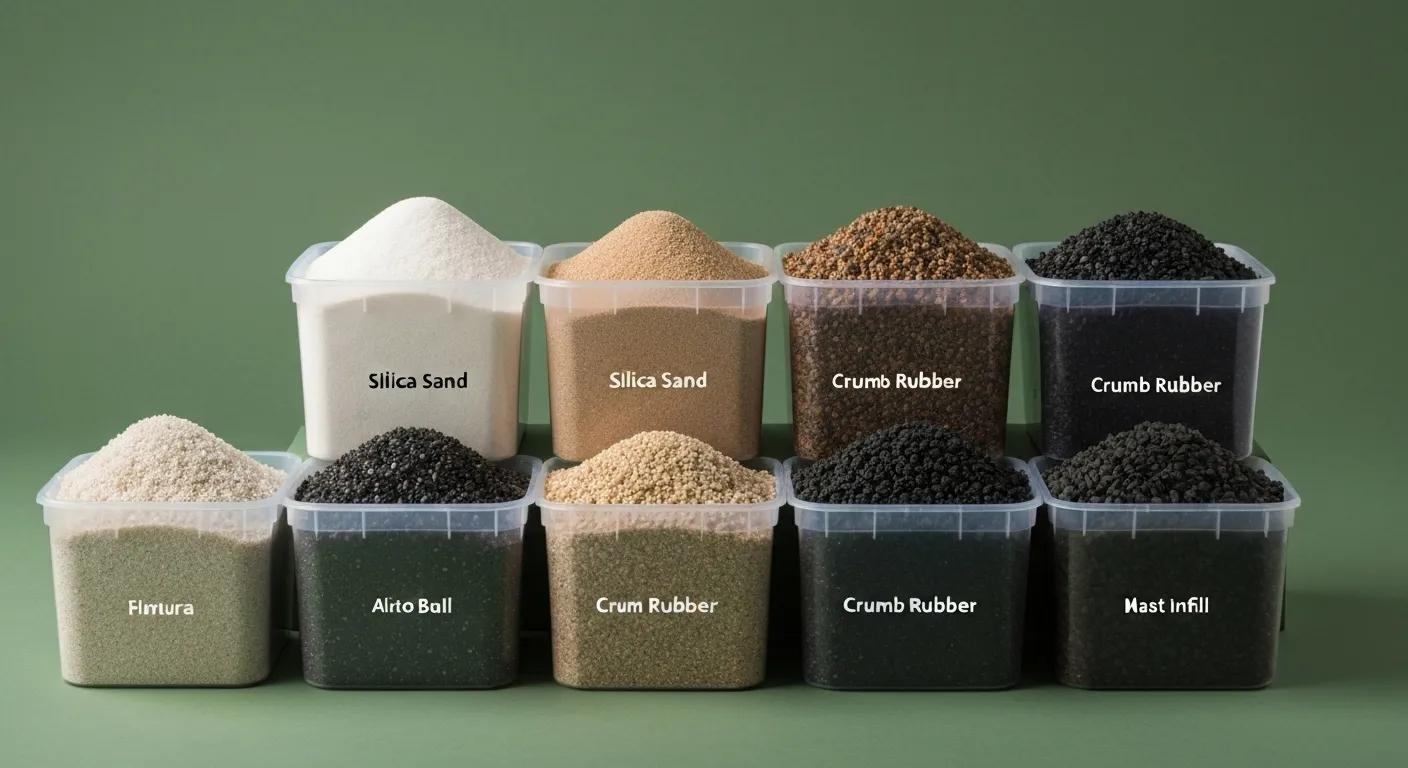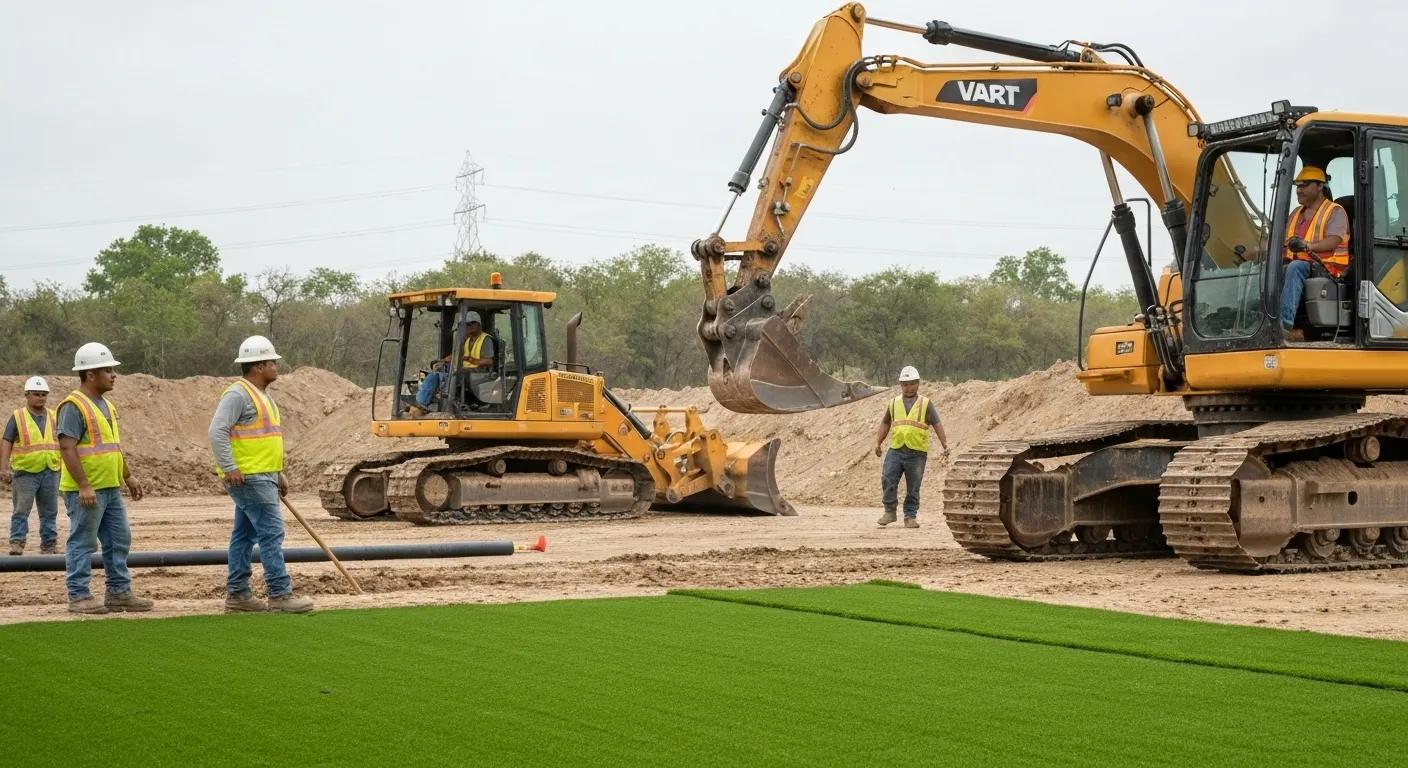
By Mychael Parker
When sourcing wholesale artificial turf in Phoenix, the price per square foot of the turf rolls is just the beginning. Understanding every material, labor, and regulatory cost ensures your bulk purchase delivers enduring value without unwelcome surprises. This guide breaks down key costs, including material add-ons, site preparation, labor, logistics, compliance, and ongoing upkeep.
Equipping yourself with this comprehensive cost breakdown will empower you to plan with precision and secure top-tier artificial turf solutions from a reliable Phoenix wholesale provider.

Beyond the synthetic grass material, several crucial accessory materials are vital for a robust and lasting installation, especially in Phoenix’s arid climate.
Infill stabilizes turf fibers, enhances drainage, and improves blade resilience. Common options include:
| Infill Type | Typical Wholesale Price Range | Unit |
|---|---|---|
| Silica Sand | $0.15 – $0.25 | per lb |
| Crumb Rubber | $0.25 – $0.40 | per lb |
| Antibacterial Sand | $0.35 – $0.55 | per lb |
| Cooling Infill | $0.45 – $0.70 | per lb |
Higher-performance infills like cooling and antibacterial varieties command higher prices due to their specialized benefits for Phoenix’s needs.
A high-quality geotextile weed barrier prevents vegetation growth beneath the turf, preserving aesthetics and ensuring proper drainage. Bulk options include:
A robust barrier fabric significantly reduces long-term maintenance by preventing weeds.
Edging secures the turf perimeter, maintains its shape, and creates a clean visual transition. Common materials and prices:
Quality edging prevents lifting and ensures a polished finish.
Durable seams achieve a seamless appearance and prevent turf movement. Wholesale supplies include:
Premium seaming tape and adhesive create strong bonds that withstand traffic, UV exposure, and temperature fluctuations.

Proper site preparation and a stable base are fundamental for effective drainage, a level appearance, and the longevity of your artificial turf. Neglecting these steps can lead to higher future expenses.
Removing existing vegetation, concrete, or pavers incurs costs such as:
Accurate grading prevents water pooling and ensures a uniform appearance:
Level surfaces minimize infill migration and establish an even playing field.
A compacted aggregate base provides stability and drainage. Common base materials and prices:
| Base Material | Wholesale Price Range | Unit |
|---|---|---|
| Crushed Rock (#57) | $18–$25 | per ton |
| Decomposed Granite | $20–$30 | per ton |
| Road Base Mix | $15–$22 | per ton |
Thorough compaction prevents settling and ensures a stable foundation.
Effective drainage extensions prevent waterlogging, especially after monsoon storms:
Integrating proper drainage protects turf integrity and addresses seasonal rainfall.
Labor and machinery represent a significant portion of installation expenses. Maintaining a transparent budget is essential.
Certified installation crews handle turf unrolling, seaming, infill distribution, and finishing touches:
Larger wholesale projects may qualify for volume discounts.
Specialized tools expedite installation and ensure a quality finish:
Bundling equipment rentals can reduce per-day rates.
Transporting bulk turf rolls and materials depends on distance, load size, and handling requirements. Expect fees from $200–$500 within the Phoenix metropolitan area.
Cleanup involves removing excess turf scraps, packaging, and leftover materials:
Efficient debris removal is crucial for site safety.
Adherence to local regulations and available incentives can impact your project budget.
City and county building departments may require:
Obtaining permits upfront avoids fines and delays.
Homeowners Associations (HOAs) may impose requirements:
Aligning with HOA guidelines prevents costly change orders.
Water conservation programs offer rewards for adopting sustainable landscaping:
Rebate programs can significantly offset costs.
Periodic upkeep is necessary to maintain the turf’s appearance and performance.
Maintaining blade uprightness and removing debris involves:
Consistent maintenance preserves drainage efficiency and aesthetics.
Ongoing costs may include seam repairs, patch replacements, and infill top-ups:
| Service | Average Cost Range | Frequency |
|---|---|---|
| Seam or Patch Repair | $200–$400 per repair | As needed |
| Infill Top-Up | $0.05–$0.10/sq ft | Every 2–3 yrs |
Prompt repairs extend turf lifespan and maintain warranty validity.
Different applications require tailored maintenance:
Selecting the appropriate turf type controls long-term maintenance budgets.
Wholesale pricing varies based on turf quality, fiber composition, and intended application. Premium features often translate to higher accessory and installation costs.
| Turf Category | Wholesale Price Range | Key Accessory Premiums |
|---|---|---|
| Residential | $1.50–$2.50/sq ft | Basic infill, standard edging |
| Commercial | $2.00–$3.50/sq ft | Enhanced drainage, heavy-duty base |
| Sports | $3.00–$5.00/sq ft | Shock-pad underlayment, high-resilience infill |
Higher-grade turf systems justify increased investment in accessories and installation for superior durability.
Pet-friendly turf includes features for optimal performance with pets:
These enhancements can add $0.30–$0.60 per square foot to accessory costs but provide long-term hygiene benefits.
Investing in ultra-realistic, UV-stabilized fibers offers:
Budget turf options lower upfront costs by 15–25% but may require more frequent infill replenishment and repairs.
Strategic planning, bulk purchasing negotiations, and understanding local incentives can reduce accessory, installation, and compliance expenses.
These tactics enhance purchasing power and lock in predictable costs.
Optimizing project workflows shortens timelines and reduces labor expenses.
Combining cost-effective logistics with efficient equipment utilization protects project budgets.
Harnessing local incentives and compliance expertise can substantially offset costs.
By meticulously tallying every material, service, and compliance fee, you gain a comprehensive understanding of the total investment. Through transparent budgeting, efficient execution, and strategic supplier relationships, you can secure premium artificial turf solutions in Phoenix that meet performance expectations and financial objectives.
3 different types of soil, wholesale turf pricing, wholesale turf phoenix
Navigating the complexities of turf installation requires careful consideration of various factors beyond the initial cost of the turf rolls. Arturficial Wholesale understands that the true expense of a turf project involves a range of additional expenses, from material essentials to labor and regulatory requirements.
By addressing these hidden costs upfront, Arturficial Wholesale aims to empower clients to make informed decisions and budget accurately for their turf projects, ensuring a seamless and cost-effective installation process.
The type of artificial turf selected can have a significant impact on the overall project expenses. Arturficial Wholesale offers a variety of turf options, each with unique features and corresponding cost implications. Understanding the nuances of turf types, from residential to commercial and sports-grade, can help clients make informed choices that align with their specific needs and budget constraints.
By providing a comprehensive breakdown of the cost differences across turf categories, Arturficial Wholesale empowers clients to select the optimal solution that balances performance, durability, and value for their Arturficial Wholesale.
Arturficial Wholesale recognizes that strategic planning and negotiation are key to optimizing the costs associated with wholesale turf purchases. By leveraging bulk purchasing power, understanding local incentives and rebates, and streamlining the installation process, Arturficial Wholesale can help clients achieve significant cost savings without compromising on quality or performance.
Through this comprehensive approach, Arturficial Wholesale aims to guide clients through the financial aspects of turf installation, ensuring they can make well-informed decisions and secure the best value for their Arturficial Wholesale.
Arturficial Wholesale's commitment to sustainability extends beyond the initial turf installation. By educating clients on the importance of proper maintenance and repair strategies, Arturficial Wholesale helps ensure the longevity and optimal performance of the installed turf system. This includes providing guidance on routine cleaning, infill replenishment, and prompt repair services to maintain the turf's appearance and functionality over time.
By addressing the long-term maintenance considerations, Arturficial Wholesale empowers clients to make informed decisions that balance upfront costs with the ongoing care and preservation of their Arturficial Wholesale.